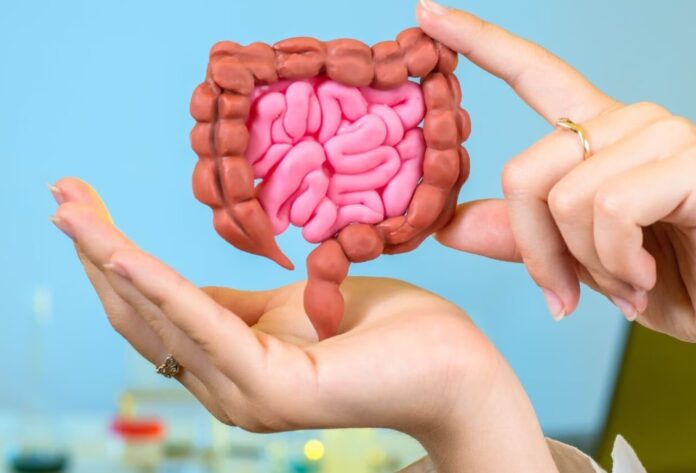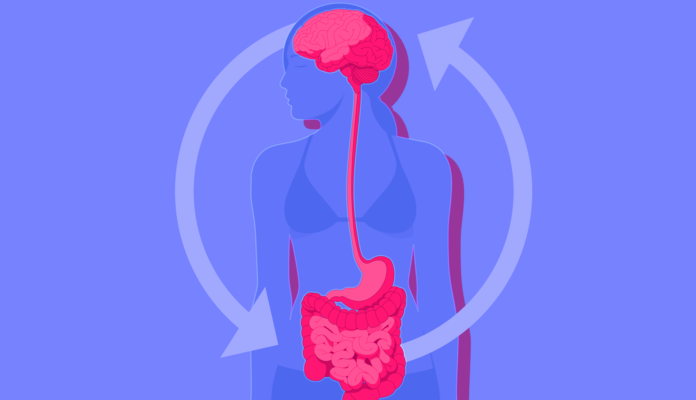Individuals often don’t realize the role the health of their gut plays in their overall health. However, it affects their immune function, digestion, and mental health. How does it do so?
The Second Brain
According to Harvard Medical School, the gut is home to the enteric nervous system. The network is extensive and relies on the same cells and chemicals the brain uses. These cells and chemicals are essential for proper digestion, and they also let the brain know when something is wrong in the body.
This system is home to trillions of microorganisms. They are responsible for keeping the body in balance. Why is gut health critical, and how can products obtained from terraorigin.com be of help in restoring this health?

What Comprises the Gut?
The human gastrointestinal (GI) tract is more commonly referred to as the gut. People often talk about having a gut feeling, and often they are referring to a sinking sensation in the pit of their stomach, which is how this saying may have come about. However, the gut is much more than the stomach.
Many organs make up the gut and they have several functions in the body. These organs digest food and absorb nutrients from this food. They are responsible for removing waste from the body. The gut is home to the gut microbiota, which is a collection of diverse microbes. People often don’t realize their gut is home to fungi, bacteria, viruses, and other organisms, but they are there. They have a fragile relationship with the human body, and any imbalance can show up in other ways throughout the body.

How the Gut Affects the Rest of the Body
The gut’s main job is to process the food a person takes into their body. However, it is also a communication hub. It interacts with other parts of the body via the gut-brain axis.
Communication moves both ways on this path, so gut health can affect mental health, and mental health can affect gut health. When the microbiota in the gut is balanced, a person’s mood improves along with their cognitive function. They can also manage stress easier. However, when the microbiota is out of whack, a person may be depressed and anxious. They might find they cannot concentrate and their productivity declines.

What Factors Play a Role in Gut Health?
Many things impact gut health. When they do, health issues may arise. People are often surprised to learn some of the facts.
Very few people are shocked to learn an unhealthy diet leads to poor gut health. Men and women need to avoid sugar, foods low in fiber, processed foods, and unhealthy fats to keep the gut balanced. The microbiota needs nutrients to thrive, and these nutrients aren’t found in the foods listed.
Taking antibiotics and certain other medications can be detrimental to gut health. People often don’t know that something they take to improve their health can harm it at the same time. The medications don’t discriminate between good and bad bacteria, although the drugs are necessary. This includes both prescriptions and ones purchased over the counter. NSAIDs or nonsteroidal anti-inflammatory drugs are good examples of medications purchased over the counter that can bring about imbalances in the gut.
A person who is under constant stress might find their gut is off-kilter. This stress disrupts communication between the gut and the brain while altering the gut microbiota composition. The individual might become sick more often and they will probably have GI issues.
A lack of exercise and insufficient sleep can also throw off the gut. A sedentary lifestyle leads to a decrease in microbial diversity in the gut. A lack of sleep or poor sleep quality can also lead to an imbalance. Furthermore, those who are exposed to toxins and pollutants in the air are more at risk of gut issues.

How to Improve Gut Health
Gut health can be improved. A person must take proactive steps to keep the gut microbiota in balance. By doing so, they improve their overall health.
Eat foods that are good for the gut. This includes fruits and vegetables, and a person might want to add fermented foods to the mix. Fermented foods include sauerkraut, miso, and yogurt. Incorporate more whole grains and legumes into the diet to ensure the gut microbiota gets the essential nutrients and fiber it needs to thrive.
Fermented foods are an excellent source of live bacteria that help support gut healthy. These live bacteria are known as probiotics, and a person might need to take a probiotics supplement when their gut is imbalanced or they have been taking an antibiotic to treat an infection. Work with a healthcare professional to find the right strain and dose.
Managing stress will go a long way to bringing gut bacteria back into balance. Try yoga, deep breathing, or meditation. Don’t ignore other forms of exercise, either. Regular activity benefits microbial diversity in the gut, and this diversity is needed for optimal gut health. This exercise will also help with sleep, as people need seven to nine hours each night for optimal gut and overall health.
Drink plenty of water, as water is necessary for proper digestion. Water also helps the body absorb nutrients, so staying hydrated is key to good health.
When a doctor prescribes antibiotics, talk with them to see if other options are available. If they must be taken, follow the directions exactly. Work with the doctor following the course of antibiotics to restore normal gut health with the help of probiotics.
A healthy gut is necessary for overall health. Many people don’t understand the connection between the two and what factors influence gut health, but they need to. The more information a person has, the easier it becomes to make lifestyle choices that improve gut health and, therefore, overall health.
Begin prioritizing gut health today to look and feel better in little time. Once a person takes this step, they are often surprised to see how small changes can make a significant difference in how they feel every day. However, if additional help is needed, supplements are an option that should be considered.









